DOJ Finally Takes a Swing at D.C. Gun Ban
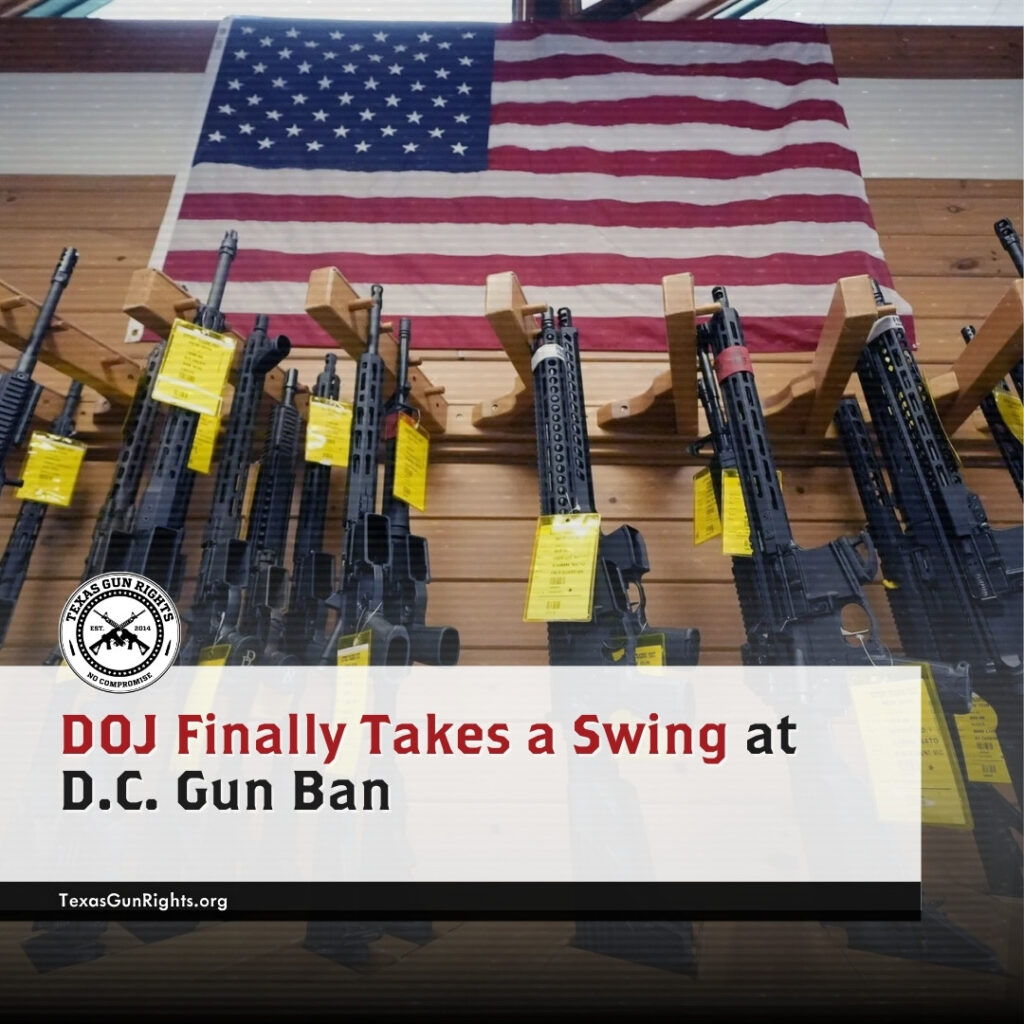
For the first time since quietly creating a new Second Amendment Section inside the Civil Rights Division, the Department of Justice has finally done something gun owners have been demanding for years: it sued D.C. over its long-standing gun ban. Just before Christmas, the DOJ filed a sweeping federal lawsuit against the District of Columbia, challenging the […]
Blumenthal Pushes Indefinite “Background Checks”
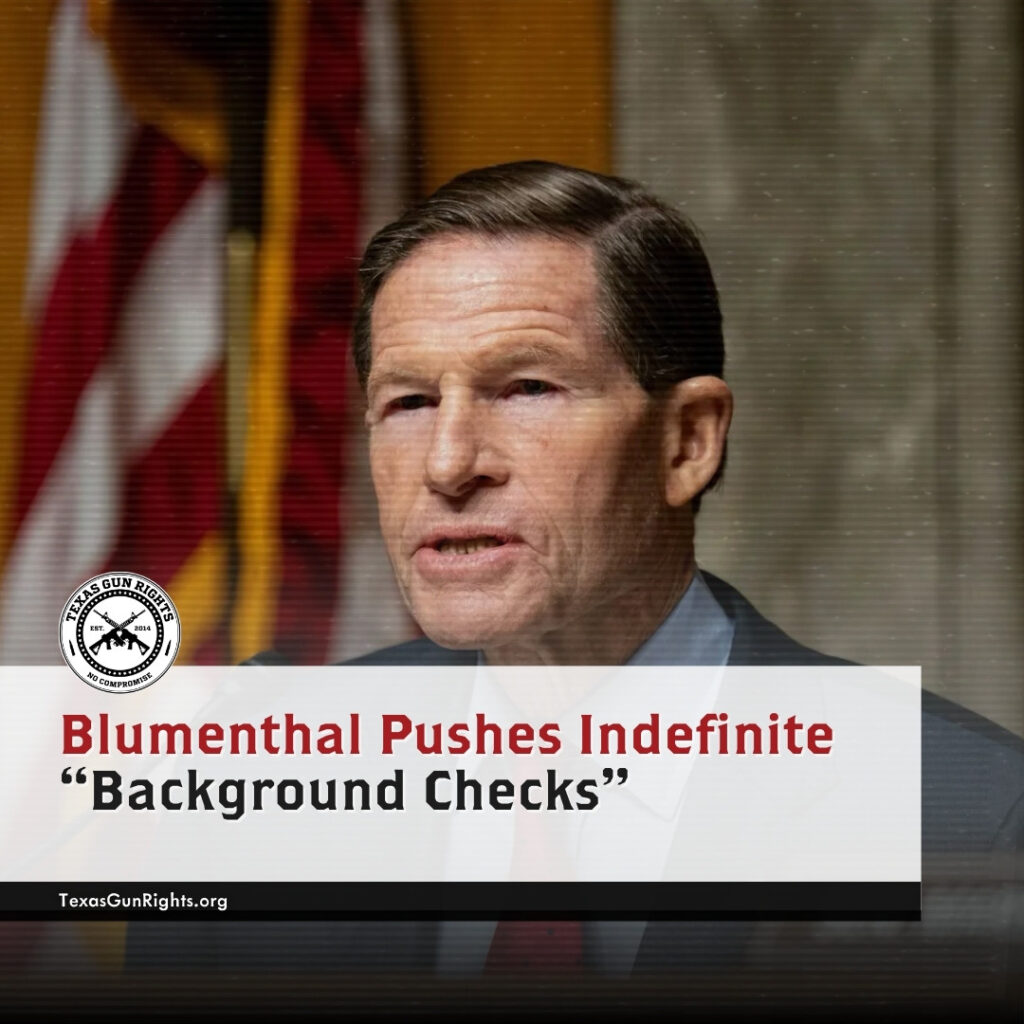
Sen. Richard Blumenthal (D-Conn.) has introduced legislation gun-rights advocates say would function as a de facto federal gun ban, not by outlawing firearms outright, but by allowing the federal government to delay lawful gun purchases indefinitely. The proposal, misleadingly titled the “Background Check Completion Act,” would eliminate the long-standing federal safeguard that allows a firearm […]
DOJ Claims Knives Aren’t Protected by the Second Amendment — The Data, History, and Law Say Otherwise

The Department of Justice recently advanced a remarkable argument in federal court: that certain knives—specifically automatic switchblade knives—are not protected by the Second Amendment. According to the DOJ, knives are supposedly “inherently dangerous,” “easily concealable,” and historically subject to regulation, placing them outside constitutional protection. That claim collapses under even modest scrutiny. The Second Amendment […]
Soros Backing Foreign Agents for the Erosion of American Gun Law

Public debates about firearms policy in the United States are usually framed as domestic disagreements over crime and public safety. But a series of recent lawsuits targeting the American gun industry reveal a far more consequential development: a coordinated effort by foreign governments, assisted by U.S.-based advocacy groups acting as foreign agents, to use American […]
What the Bondi Beach Terror Attack Reveals About Disarmament — And Why Americans Must Never Surrender the Second Amendment
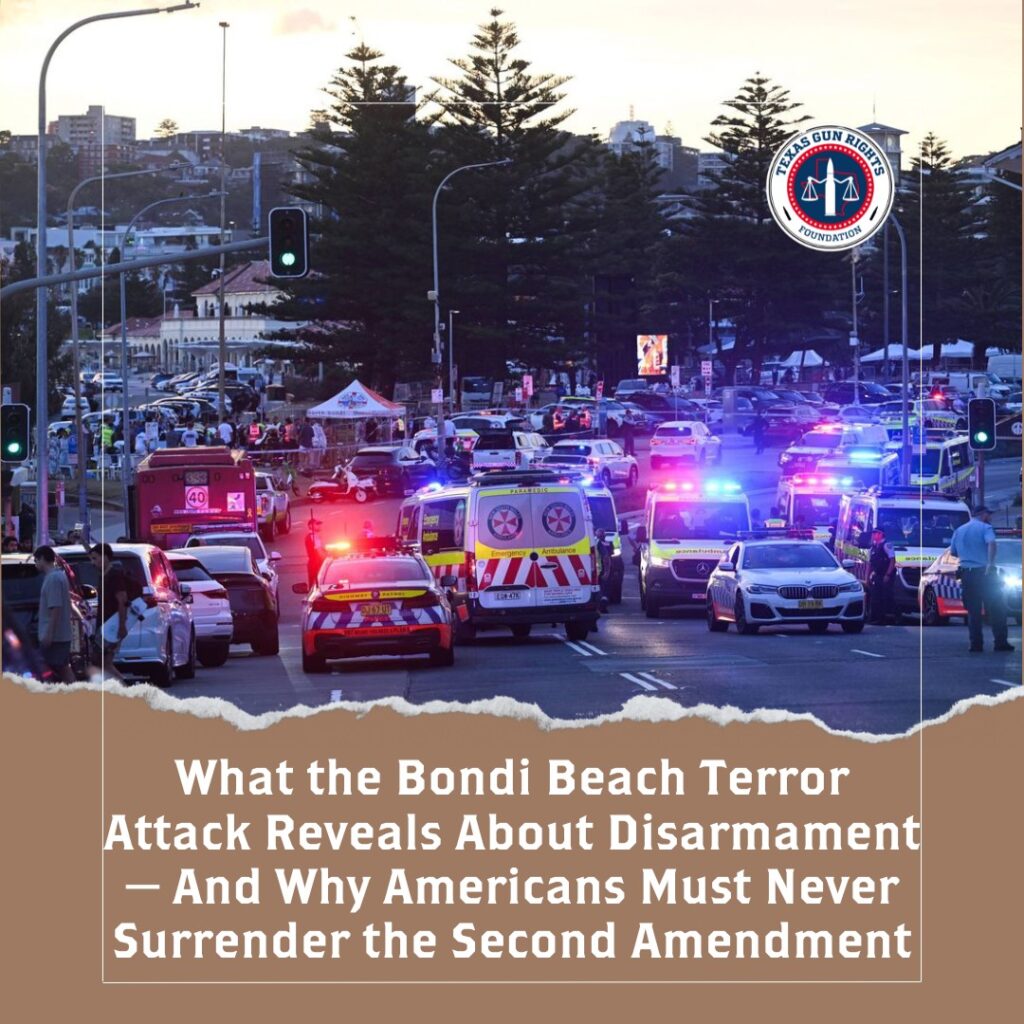
On December 14, 2025, something horrific unfolded on a sunny Sydney evening that should shake the world awake. At Archer Park beside Bondi Beach, two men opened fire on families celebrating the first night of Hanukkah — a peaceful Jewish event where children played, elders laughed, and friends gathered in fellowship. By the time it […]
DOJ’s New “Second Amendment Section”: Is Real Reform Coming?
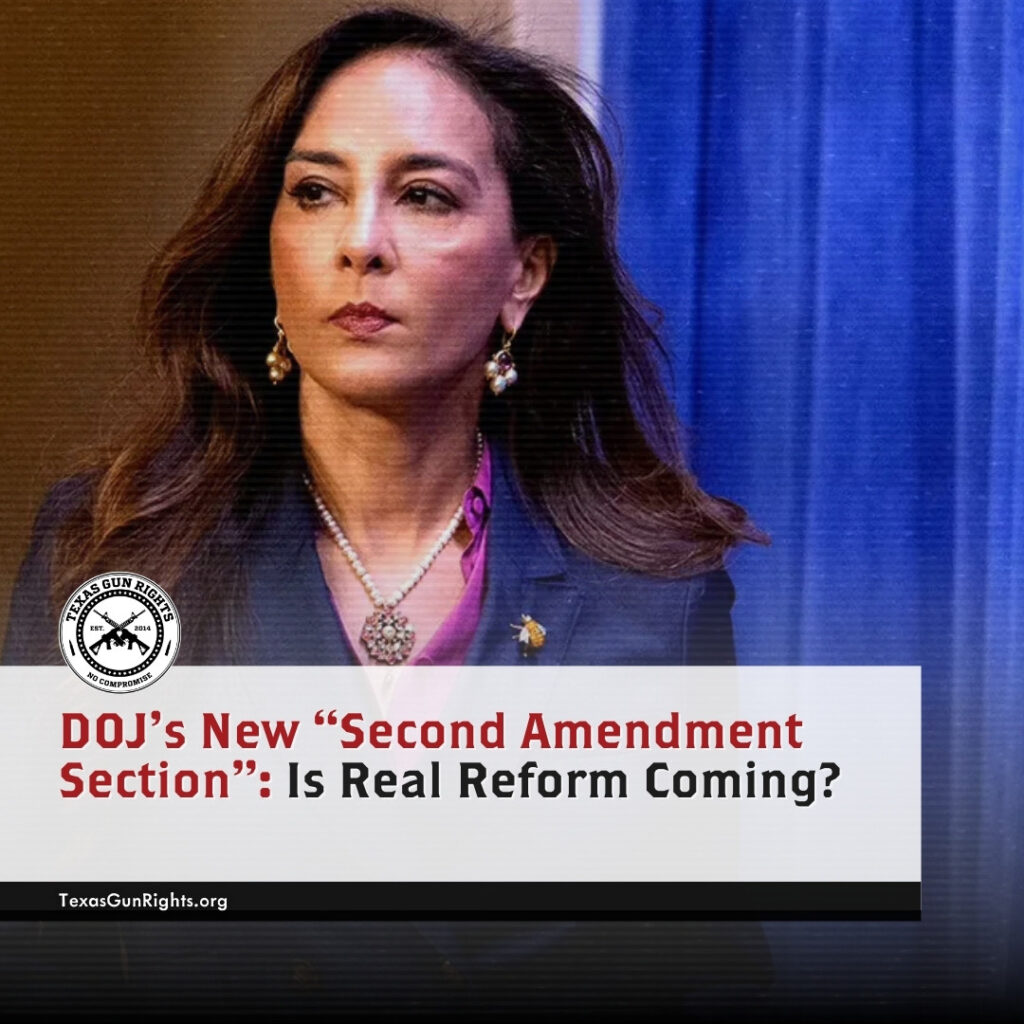
When the Department of Justice quietly floated reports of a new “Second Amendment Rights Section” earlier this month, gun owners were right to be skeptical. Now, the DOJ has made it official. With a formal announcement and a carefully worded rollout to friendly media outlets like Fox News, the DOJ claims it is launching a […]
Brandon Herrera Is Surging — And Tony Gonzales Is Running Out of Excuses
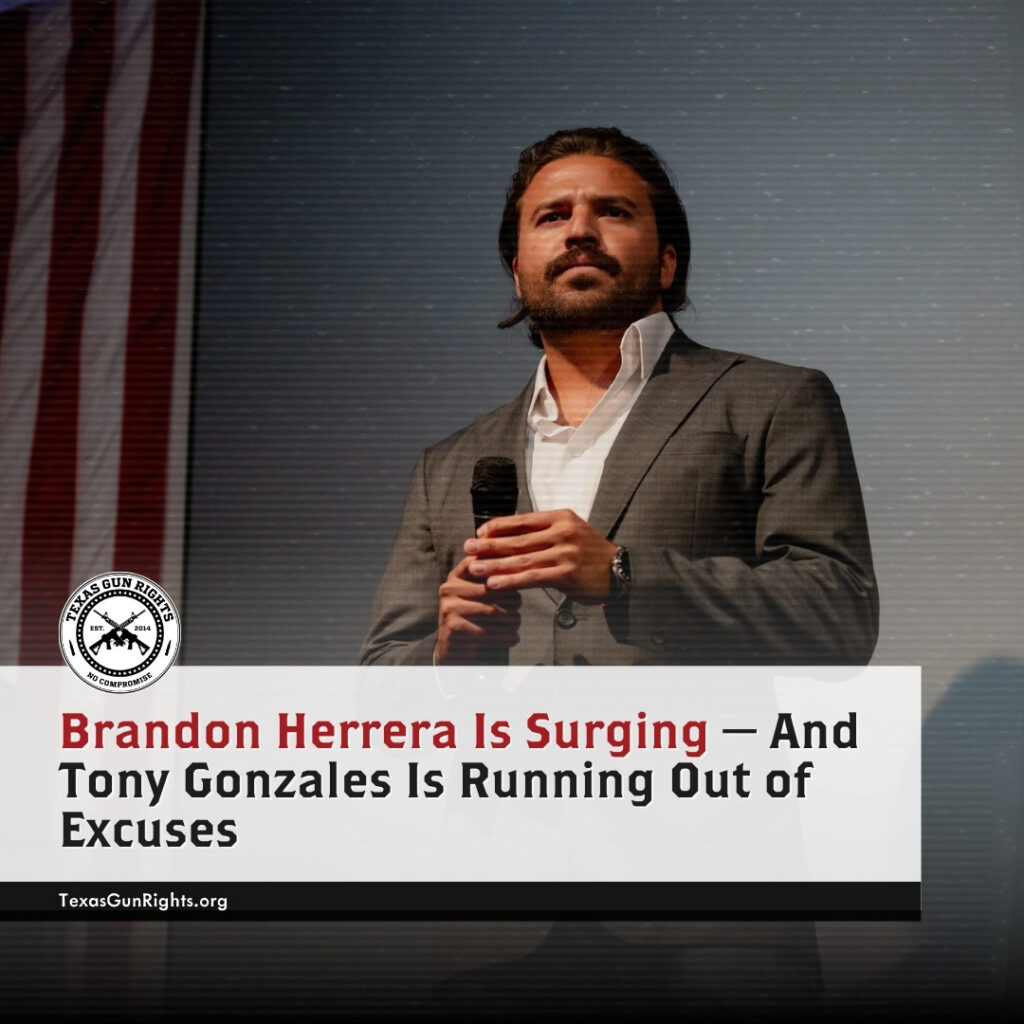
The latest reporting on the Republican primary in Texas’ 23rd Congressional District has once again highlighted something gun owners across Texas have been talking about for years: there is a profound difference in how the candidates approach the Second Amendment. Firearms-manufacturer and grassroots activist Brandon Herrera has drawn national attention for his outspoken opposition […]
Ilhan Omar’s Plan to Register & Confiscate Your Guns

Ilhan Omar has finally done what gun-control politicians usually try to hide behind poll-tested talking points: she openly called for a national gun registry and a federal “buyback” program to reduce the number of privately owned firearms in America. And just like that, she confirmed exactly what gun owners have been warning about for decades: Registration. Confiscation. […]
What the Arrest of a British Tourist Says About Freedom — and Why America Must Never Surrender Its Rights

When Jon Richelieu-Booth boarded a plane home to England after a Florida vacation, he had no reason to believe a simple photo — a harmless picture of himself shooting a legally rented shotgun at a gun range — would soon turn his life upside down. But within days of posting that photo on LinkedIn, British police […]
Crockett and Talarico Are Two Peas in the Same Anti-Gun Pod

Texas politics just got a whole lot swampier. With Collin Allred slinking out of the U.S. Senate race, Democrats have cleared the lane for two gun-grabbing extremists: Jasmine Crockett and James Talarico — two politicians cut from the same anti-freedom cloth, even if they package their assaults on the Second Amendment differently. Crockett is the fire-breathing progressive who wears her contempt […]
